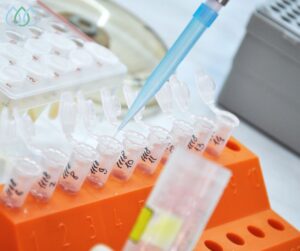Hormone Doctor Toronto
What to Expect During Your First Visit With a Naturopathic Doctor Who Focuses on Hormone Health
Welcome to our comprehensive guide on finding the best naturopathic doctor with a focus on hormones in Toronto and preparing for your first visit! Hormonal imbalances can have a significant impact on your overall health and well-being, and it’s essential to find a healthcare professional who understands your unique needs. In this guide, we’ll walk you through the process of finding a qualified naturopathic doctor, what to expect during your initial consultation, and how to make the most of your journey towards better hormonal health.
I. Introduction
A. Overview of naturopathic medicine and its holistic approach
B. Importance of addressing hormonal imbalances for overall health
C. Purpose of the guide: preparing for the first visit with a naturopathic hormone doctor
II. Finding a Qualified Hormone Doctor
A. Checking credentials and licensing
B. Verifying experience in hormone health and bioidentical hormone replacement therapy (BHRT)
C. Researching online reviews and recommendations
III. Preparing for the Appointment
A. Gathering relevant medical records and test results
B. Listing symptoms and concerns related to hormonal health
C. Preparing a list of questions for the naturopathic doctor
IV. The Initial Consultation
A. Intake process and comprehensive medical history
1. Discussing current symptoms and concerns
2. Reviewing past medical history, including hormonal issues
3. Examining lifestyle factors, such as diet, exercise, stress, and sleep habits
B. Physical examination, if necessary
C. Ordering diagnostic tests to assess hormone levels and imbalances
V. Diagnostic Testing and Evaluation
A. Types of tests that may be ordered
1. Blood tests
2. Saliva tests
3. Urine tests
B. Evaluating test results to determine the underlying causes of hormonal imbalances
VI. Developing a Personalized Treatment Plan
A. Discussing the results of diagnostic tests and their implications
B. Creating a treatment plan tailored to individual needs and goals
1. Dietary and lifestyle changes
2. Herbal medicine and supplements
3. Bioidentical hormone replacement therapy (BHRT), if appropriate
4. Stress management techniques
5. Other complementary therapies, as needed
C. Setting realistic expectations for treatment outcomes and timelines
VII. Ongoing Support and Monitoring
A. Scheduling follow-up appointments to track progress and adjust treatment
B. Communication and collaboration with other healthcare providers, if necessary
C. Providing guidance and support for implementing and maintaining lifestyle changes
VIII. Conclusion
A. Emphasizing the importance of addressing hormonal imbalances for overall well-being
B. Encouraging open communication and active involvement in the treatment process
C. Wishing readers a successful first visit with their naturopathic hormone doctor in Toronto
I. Introduction
A. Overview of naturopathic medicine and its holistic approach
Naturopathic medicine is all about using natural therapies and focusing on the big picture when it comes to your health. Instead of just tackling your symptoms, naturopathic doctors (NDs) dig deep to figure out what’s really causing your health issues. They’ll work with you to create a personalized treatment plan that takes into account your body, mind, and environment. The ultimate goal? To help you feel your best and keep you healthy in the long run.
B. Importance of addressing hormonal imbalances for overall health
Now, let’s talk about hormones. These little chemical messengers are super important because they control all kinds of functions in your body, like your metabolism, growth, and stress response. When your hormones are out of whack, it can cause a bunch of problems like mood swings, weight gain, and trouble sleeping. Plus, if you don’t get your hormones back on track, you could end up with more serious health issues down the road, like diabetes or thyroid problems. That’s why it’s so important to tackle hormonal imbalances head-on and get your body back in balance.
C. Purpose of the guide: preparing for the first visit with a naturopathic hormone doctor
This guide is all about getting you ready for your first visit with a naturopathic hormone doctor in Toronto. We want to make sure you know what to expect so you can feel confident and excited about taking charge of your hormonal health. We’ll cover everything from finding the right doctor to understanding the different treatments they might recommend. Our goal is to give you the knowledge and tools you need to make informed decisions about your health and work together with your naturopathic doctor to get the results you’re looking for.

II. Finding a Qualified Naturopathic Hormone Doctor
A. Checking credentials and licensing
First things first, you’ll want to make sure the naturopathic doctor you choose has the right credentials and licensing. In Ontario, naturopathic doctors are regulated by the College of Naturopaths of Ontario (CONO), so you’ll want to check that they’re registered with the college. Also, make sure they’ve completed the required training, including a degree from an accredited naturopathic medical school and any additional courses related to hormone health.
B. Verifying experience in hormone health and bioidentical hormone replacement therapy (BHRT)
It’s super important to find a naturopathic doctor who really knows their stuff when it comes to hormones. You’ll want to look for someone with experience in treating hormonal imbalances and, if you’re considering bioidentical hormone replacement therapy (BHRT), someone who’s well-versed in that as well. Don’t be shy about asking potential doctors about their background and experience in hormone health – they should be more than happy to chat with you about it!
C. Researching online reviews and recommendations
When you’re on the hunt for the perfect naturopathic doctor with a focus on hormones, the internet can be your best friend. There are lots of online resources where you can find reviews and recommendations from other patients. Take some time to read through what people are saying about the doctors you’re considering. Keep in mind that everyone’s experience is different, so try not to focus on just one or two reviews – look for overall trends and themes in the feedback. And don’t forget to ask your friends and family for recommendations too! They might know someone who’s had a great experience with a naturopathic doctor who focuses on hormones in Toronto.
III. Preparing for the Appointment
A. Gathering relevant medical records and test results
B. Listing symptoms and concerns related to hormonal health
C. Preparing a list of questions for the naturopathic doctor
III. Preparing for the Appointment
A. Gathering relevant medical records and test results
Alright, so you’ve found the perfect naturopathic doctor and scheduled your appointment. Now it’s time to get organized! Start by gathering all of your relevant medical records and test results. This might include things like blood tests, imaging studies, or any previous hormone-related treatments you’ve had. Having all this information handy will help your new doctor get a better understanding of your health history and make it easier for them to figure out the best course of action for your treatment.
B. Listing symptoms and concerns related to hormonal health
Next, take some time to think about the symptoms and concerns that led you to seek help for your hormonal health. Maybe you’ve been struggling with mood swings, fatigue, or weight gain. Or perhaps you’ve noticed changes in your menstrual cycle or libido. Jot down everything that’s been bothering you, even if it seems minor. This will help your naturopathic doctor get a clear picture of what’s going on and ensure that they address all of your concerns during your appointment.
C. Preparing a list of questions for the naturopathic doctor
Finally, don’t forget to come up with a list of questions for your naturopathic doctor. This is your chance to get all the information you need to feel confident and comfortable with your treatment plan. You might want to ask about their experience with hormone health, the different types of treatments they offer, or what you can expect in terms of results and timelines. Don’t be afraid to ask anything that’s on your mind – remember, there are no silly questions when it comes to your health!
IV. The Initial Consultation
A. Intake process and comprehensive medical history
1. Discussing current symptoms and concerns
2. Reviewing past medical history, including hormonal issues
3. Examining lifestyle factors, such as diet, exercise, stress, and sleep habits
B. Physical examination, if necessary
C. Ordering diagnostic tests to assess hormone levels and imbalances
A. Intake process and comprehensive medical history
Discussing current symptoms and concerns
When you meet with your naturopathic doctor for the first time, they’ll likely start by asking about your current symptoms and concerns. This is your chance to share everything you wrote down earlier and have an open, honest conversation about what’s been going on. The more information you can provide, the better equipped your doctor will be to help you get your hormones back in balance.
Reviewing past medical history, including hormonal issues
Next, your doctor will want to dive into your past medical history. They’ll be particularly interested in any previous hormonal issues you’ve had, but they’ll also want to know about other health concerns, medications, and treatments you’ve tried. This will help them get a better understanding of your overall health and any factors that could be contributing to your hormonal imbalances.
Examining lifestyle factors, such as diet, exercise, stress, and sleep habits
Your naturopathic doctor will also want to chat about your lifestyle. That’s because things like your diet, exercise routine, stress levels, and sleep habits can all play a big role in your hormonal health. Be prepared to discuss what you typically eat, how often you exercise, how you manage stress, and what your sleep patterns are like. Your doctor might also ask about your work environment, relationships, and any other factors that could be impacting your well-being.
B. Physical examination, if necessary
Depending on your specific concerns, your naturopathic doctor might decide to perform a physical examination during your initial consultation. This could involve checking things like your blood pressure, heart rate, and thyroid gland. Remember, this is all part of the process of getting to know your body and figuring out the best way to help you achieve optimal hormonal health.
C. Ordering diagnostic tests to assess hormone levels and imbalances
Finally, your naturopathic doctor will likely order some diagnostic tests to get a better idea of what’s going on with your hormones. These tests might include blood, saliva, or urine samples to measure hormone levels and identify any imbalances. Once your doctor has all this information, they’ll be able to come up with a personalized treatment plan that’s tailored to your specific needs and goals.
V. Diagnostic Testing and Evaluation
A. Types of tests that may be ordered
1. Blood tests
2. Saliva tests
3. Urine tests
B. Evaluating test results to determine the underlying causes of hormonal imbalances
A. Types of tests that may be ordered
Blood tests
Blood tests are a common way for your naturopathic doctor to check your hormone levels. They’ll typically ask you to visit a lab to have a sample drawn, which will then be analyzed to measure the levels of various hormones in your body. This can help your doctor identify any imbalances and get a better understanding of what might be causing your symptoms.
Saliva tests
Saliva tests are another option for measuring hormone levels, and they can sometimes provide more accurate results for certain hormones, like cortisol. To do a saliva test, you’ll usually be given a kit that you can use at home to collect samples at different times throughout the day. This can be especially helpful for tracking hormone levels that fluctuate throughout the day, giving your doctor a more complete picture of your hormonal health.
Urine tests
Urine tests are less common for hormone testing, but they can still be useful in some cases. Like saliva tests, urine tests can be done at home using a special kit. They can help your doctor assess hormone levels over a longer period of time, which can be useful for identifying trends and patterns in your hormonal health.
B. Evaluating test results to determine the underlying causes of hormonal imbalances
Once your doctor has your test results, they’ll take a close look at the numbers to figure out what’s going on with your hormones. They’ll be looking for any imbalances or abnormal levels that could be causing your symptoms. Keep in mind that hormones are complex, and it’s not always a simple case of one hormone being too high or too low. Your doctor will use their expertise to interpret the results and identify the underlying causes of your hormonal issues. This will help them create a personalized treatment plan that addresses the root of the problem and gets you on the path to better hormonal health.
VI. Developing a Personalized Treatment Plan
A. Discussing the results of diagnostic tests and their implications
B. Creating a treatment plan tailored to individual needs and goals
1. Dietary and lifestyle changes
2. Herbal medicine and supplements
3. Bioidentical hormone replacement therapy (BHRT), if appropriate
4. Stress management techniques
5. Other complementary therapies, as needed
C. Setting realistic expectations for treatment outcomes and timelines
A. Discussing the results of diagnostic tests and their implications
Once your naturopathic doctor has a solid understanding of your hormone levels and any imbalances, they’ll sit down with you to talk about what it all means. They’ll explain the results of your tests, what they’ve discovered about your hormonal health, and how it might be impacting your overall well-being. This is a great opportunity for you to ask any questions and make sure you fully understand what’s going on with your body.
B. Creating a treatment plan tailored to individual needs and goals
Now comes the exciting part—working together with your doctor to create a personalized treatment plan that’s all about helping you feel your best. Your plan might include a combination of the following:
Dietary and lifestyle changes: Your doctor might recommend tweaks to your diet, exercise routine, and sleep habits to help improve your hormonal health.
Herbal medicine and supplements: Some herbs and supplements can be really helpful for balancing hormones. Your doctor will suggest the ones that are best for your specific needs.
Bioidentical hormone replacement therapy (BHRT), if appropriate: If your doctor thinks BHRT is a good option for you, they’ll discuss the details and make sure you’re comfortable with the idea.
Stress management techniques: Since stress can wreak havoc on your hormones, your doctor might suggest relaxation exercises, mindfulness practices, or other stress-reduction strategies.
Other complementary therapies, as needed: Your doctor may also recommend other treatments like acupuncture, massage, or chiropractic care to support your overall health and well-being.
C. Setting realistic expectations for treatment outcomes and timelines
Lastly, your naturopathic doctor will help you set realistic expectations for your treatment outcomes and how long it might take to see results. Keep in mind that everyone’s body is different, and it can take some time for your hormones to rebalance and for you to start feeling better. Your doctor will work with you to monitor your progress, make adjustments to your treatment plan as needed, and celebrate your successes along the way. Just remember to be patient and stay committed to your health journey—you’ve got this!

VII. Ongoing Support and Monitoring
A. Scheduling follow-up appointments to track progress and adjust treatment
B. Communication and collaboration with other healthcare providers, if necessary
C. Providing guidance and support for implementing and maintaining lifestyle changes
A. Scheduling follow-up appointments to track progress and adjust treatment
As you embark on your journey towards better hormonal health, your naturopathic doctor will be there to support you every step of the way. They’ll schedule regular follow-up appointments to check in on your progress, see how you’re feeling, and make any necessary adjustments to your treatment plan. Remember, healing takes time, and it’s essential to be patient and trust the process. These follow-up appointments are a great opportunity to discuss any concerns, celebrate your victories, and ensure you’re on the right track to achieving your health goals.
B. Communication and collaboration with other healthcare providers, if necessary
If you’re working with other healthcare providers, like your family doctor or a specialist, your naturopathic doctor will make sure to stay in the loop. They’ll communicate and collaborate with your other healthcare team members to ensure that everyone is on the same page and working together to support your well-being. This can be especially important if you’re dealing with multiple health issues or taking medications that could interact with your hormone treatments. By keeping the lines of communication open, your healthcare team can create a seamless, integrated approach to your care.
C. Providing guidance and support for implementing and maintaining lifestyle changes
Let’s face it—making lifestyle changes can be tough, especially when it comes to things like diet, exercise, and stress management. But don’t worry, your naturopathic doctor is here to help! They’ll provide guidance, support, and encouragement as you work to implement and maintain the changes that are part of your personalized treatment plan. They might offer tips and tricks for sticking to a healthy diet, finding an exercise routine you enjoy, or managing stress more effectively. And if you ever hit a roadblock or feel overwhelmed, don’t hesitate to reach out to your doctor for advice and support. They’re in your corner and committed to helping you succeed on your journey to better hormonal health.
VIII. Conclusion
A. Emphasizing the importance of addressing hormonal imbalances for overall well-being
B. Encouraging open communication and active involvement in the treatment process
C. Wishing readers a successful first visit with their naturopathic hormone doctor in Toronto
A. Emphasizing the importance of addressing hormonal imbalances for overall well-being
As we wrap up our guide, let’s take a moment to remember just how important it is to address hormonal imbalances for your overall well-being. Your hormones play a crucial role in regulating so many aspects of your body and mind, from your energy levels and mood to your weight and reproductive health. By working with a naturopathic hormone doctor and taking a holistic approach to your care, you’re giving yourself the best possible chance of achieving optimal hormonal health and enjoying a happier, healthier life.
B. Encouraging open communication and active involvement in the treatment process
Throughout this process, remember that open communication and active involvement in your treatment plan are key to your success. Don’t be afraid to ask questions, voice your concerns, and share your thoughts with your naturopathic doctor. By working together as a team, you’ll be better equipped to navigate the challenges and celebrate the victories that come with balancing your hormones. And always keep in mind that you are your own best advocate when it comes to your health and well-being.
C. Wishing readers a successful first visit with their naturopathic hormone doctor in Toronto
As you prepare for your first visit with your hormone focused naturopathic doctor in Toronto, we hope this guide has been helpful and informative. Remember to do your research, gather your medical records, and come prepared with questions and concerns. By taking an active role in your hormonal health journey, you’re setting yourself up for success. We wish you the very best as you embark on this exciting new chapter of your life, and we hope that you find the support, guidance, and healing you deserve. Here’s to a happier, healthier you!
If you’re ready to speak to one of our amazing Naturopathic doctors about hormone health, you can book a free consultation by clicking here.
Resources
- College of Naturopaths of Ontario (CONO): The official regulatory body for naturopathic doctors in Ontario. You can use their “Find an ND” feature to search for a licensed naturopathic doctor in Toronto. https://www.collegeofnaturopaths.on.ca/
- Canadian Association of Naturopathic Doctors (CAND): A national organization representing naturopathic doctors in Canada. Their website provides information about naturopathic medicine and how to find a naturopathic doctor. https://www.cand.ca/
- The North American Menopause Society (NAMS): A professional organization that provides information on menopause, perimenopause, early menopause, menopause symptoms, and long-term health effects of estrogen loss, and a wide variety of therapies to enhance health. https://www.menopause.org/
- Women’s Health Matters: An online health resource for women in Canada, providing reliable, evidence-based health information. Their website includes information on various hormonal health topics, including menopause, thyroid health, and polycystic ovary syndrome (PCOS). https://www.womenshealthmatters.ca/
- Hormone Health Network: An online resource that offers information about hormones, hormone-related diseases, and hormone therapy. This can be a helpful resource for understanding different hormones and their functions in the body. https://www.hormone.org/




